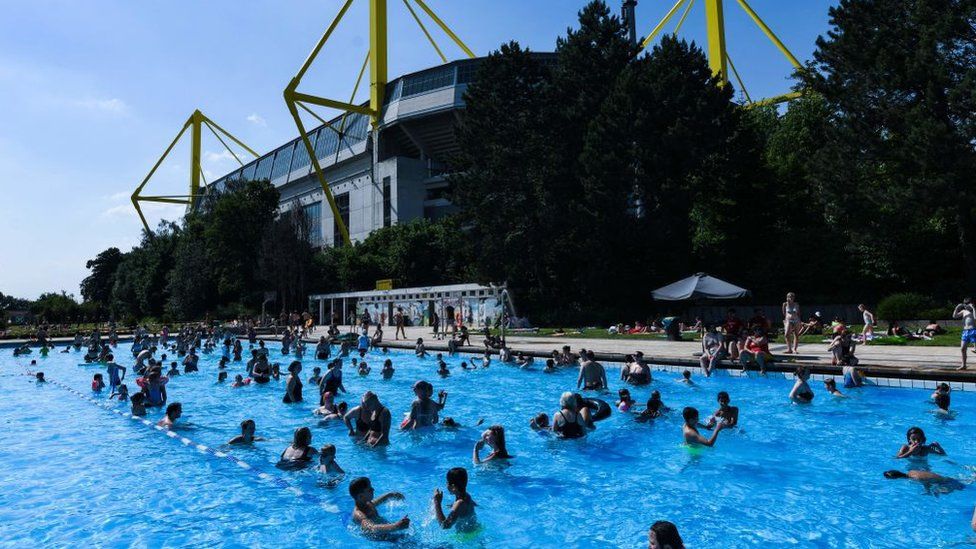Numerous large-scale fights in German outdoor swimming pools have prompted calls for increased security at the well-liked summertime resorts.
In the past, many people have flocked to their neighborhood municipal outdoor pool as temperatures across the nation soar.
But in recent years, reports of violence and large-scale fights at outdoor swimming pools have also plagued the beginning of the summer.
It's the same this summer, too.
Several incidents have been reported just in the past week.
After a fight broke out at the slide on Wednesday night in the Berlin neighborhood of Neukölln, dozens of police officers cleared the area and closed the outdoor pool.
A dispute between two young people and two pool lifeguards turned into a large brawl involving about 30 people on Monday, leading the police to order the closure of another in the Pankow neighborhood. And over the weekend, there were injuries following a brawl at a pool in Mannheim, a city in southwest Germany, involving more than 40 people. A 24-year-old man reportedly cut himself with a knife.
Official statistics do not show an increase in violence at public outdoor swimming pools.
The thousands of state-run outdoor pools in Germany are attended by millions of people, according to pool operators in Berlin, who claim that these lone, newsworthy incidents do not accurately represent their experiences.
Police officials, however, say they are worried.
The largest police union in Germany's Jochen Kopelke told the German RND newspaper group that "the capacity to resolve conflicts respectfully and without violence has diminished.".
There are numerous theories in the media about what causes fights in outdoor pools.
Some claim that the ingredients for the occasional fight are heat, alcohol, and crowds of young people walking around half-naked.
Racism seems to be present in some of the comments that blame "social hotspots" or "so-called clans"—both of which are code words for immigrant groups. Pool operators, however, claim that some German cities' traditional open-air pool cultures are changing more broadly as they report rising aggression and a lack of regard for lifeguards.
Police officials are urging pool owners and lifeguards to collaborate with police on a plan to intervene quickly before conflicts worsen.
Private security officers enforcing stricter rules at the door and in the pool are suggested as a way to prevent fights from breaking out.
The German "Freibad," or "free pool," as open-air pools are known, has historically been one of the few locations with such a diverse mix of ages and social groups. The "Freibad" represents the post–1945 German ideal of social equality, health, and affordable outdoor socializing. The authoritarian "Bademeister," or "bathing master," as pool staff were known, would oversee this mixture to ensure that the pools didn't become too free.
However, German society today is more egalitarian than ever. Therefore, in Berlin, the "Bademeister" already uses security personnel to maintain order.







